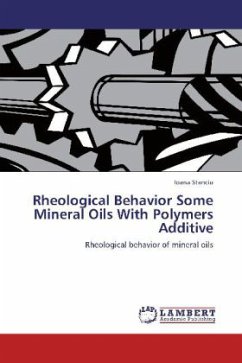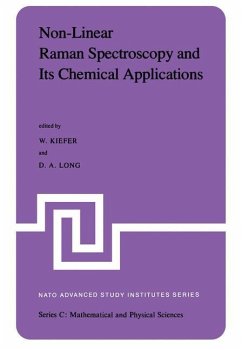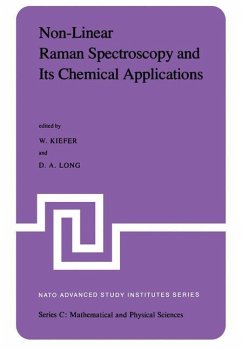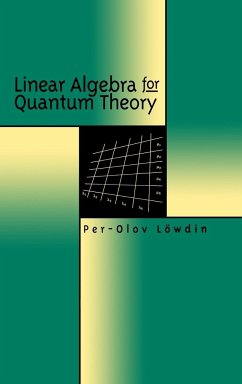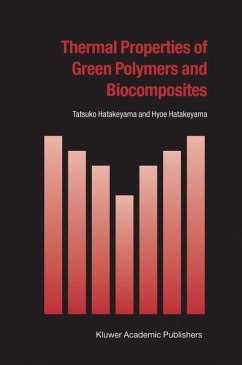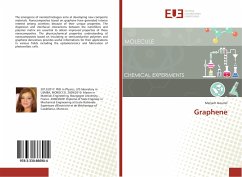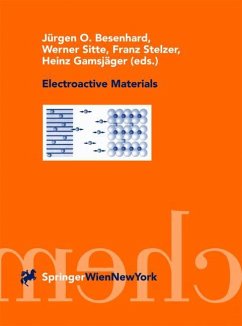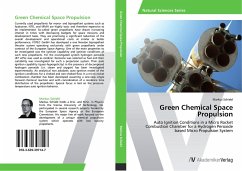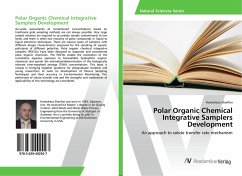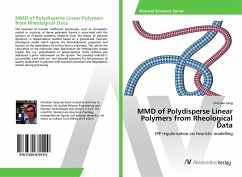
MMD of Polydisperse Linear Polymers from Rheological Data
IPP regularisation via heuristic modelling
Versandkostenfrei!
Versandfertig in 6-10 Tagen
19,99 €
inkl. MwSt.

PAYBACK Punkte
10 °P sammeln!
The inversion of transfer coefficient functionals, such as viscoelastic moduli or viscosity, of dense polymeric liquids is associated with the solution of ill-posed problems resulting from the theory of polymer dynamics. A regularisation method based on a generalised, heuristic rheological model which ignores the thermodynamic properties and focuses on the dependence of inverse time is presented. This allows the calculation of the molecular mass distribution for rheologically simple liquids like e.g. polyethylene or polypropylene melts without any additional a priori information on the system....
The inversion of transfer coefficient functionals, such as viscoelastic moduli or viscosity, of dense polymeric liquids is associated with the solution of ill-posed problems resulting from the theory of polymer dynamics. A regularisation method based on a generalised, heuristic rheological model which ignores the thermodynamic properties and focuses on the dependence of inverse time is presented. This allows the calculation of the molecular mass distribution for rheologically simple liquids like e.g. polyethylene or polypropylene melts without any additional a priori information on the system. The provided method is successfully used with uni- and bimodal polymers for the purposes of quality assessment in polymer melt extrusion processes and degradation studies during processing.



